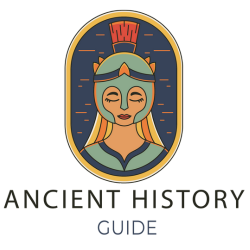Hypatia of Alexandria was a remarkable figure in the world of ancient science. She made significant contributions to mathematics, astronomy, and philosophy during a time when women faced great challenges in academic pursuits. Her work stands out as a testament to the capabilities of female scholars in a male-dominated society.
As the daughter of the mathematician Theon, Hypatia not only inherited her father’s knowledge but also expanded it. She became a well-respected teacher and was known for her skill in mathematics and her ability to explain complex ideas clearly. This made her an influential thinker in Alexandria, a hub of learning in the ancient world.
Hypatia’s tragic death only adds to her legacy, symbolizing the conflict between science and religion. Despite the turmoil around her, she paved the way for future generations of women in science. Her contributions offer valuable insights into the historical development of these fields and the importance of diversity in knowledge.
Life and Education of Hypatia
Hypatia of Alexandria had a fascinating life marked by her intellectual upbringing and rigorous education. She became a prominent thinker in ancient Alexandria, making significant contributions to mathematics and philosophy. Her early background and academic training set the stage for her influential role in ancient science.
Early Years and Background
Hypatia was born around 350-370 CE in Alexandria, a city known for its rich cultural and intellectual environment. She was the daughter of Theon, a respected mathematician and astronomer. This connection provided her with a unique advantage, as she learned about mathematics and philosophy from a young age.
Her family’s background was crucial to her development. Growing up in a time of political and social upheaval, Hypatia was exposed to diverse ideas that shaped her thinking. She became a symbol of knowledge and learning, standing out in a male-dominated field.
Studies and Academic Training
Hypatia’s education was rigorous and comprehensive. She studied under her father, Theon, who was dedicated to passing on his knowledge. In addition to mathematics, she was trained in astronomy and philosophy, particularly Neoplatonism.
She became a renowned teacher, attracting many students eager to learn. Hypatia’s courses focused on critical thinking and intellectual debate, which were vital skills in her time. Her ability to blend various subjects enabled her to make significant contributions to science and philosophy.
Hypatia’s Work as a Mathematician
Hypatia of Alexandria made significant contributions to mathematics that have had a lasting impact. Her work focused on various mathematical texts, and she was known for her teaching and scholarship.
Contributions to Mathematics
Hypatia was deeply involved in educational activities during her lifetime. She wrote commentaries on important mathematical works, including Diophantus’s “Arithmetica,” Apollonius’s “Conics,” and Ptolemy’s “Almagest.” These texts were essential for the development of algebra and geometry.
She was known for her ability to clarify complex concepts. Her commentaries helped students understand the work of earlier mathematicians. Hypatia’s approach to mathematics emphasized logical reasoning, making her teachings highly respected in her time.
She also contributed to the development of new mathematical ideas, though many of her original texts do not survive. Hypatia’s influence on mathematics was felt well beyond her lifetime, where her ideas continued to shape future scholars.
The Legacy of Her Mathematical Work
Hypatia’s work left a lasting impact on mathematics and education. She is often remembered as one of the earliest female mathematicians. Her dedication to learning and teaching inspired many through the centuries.
The commentaries she authored played a crucial role in preserving ancient knowledge during a period of great change. They served as a bridge between the ancient and modern worlds. Scholars used her interpretations as references for future studies.
Hypatia’s legacy lives on through her contributions, as she paved the way for women in mathematics and science. Her story is an important reminder of the importance of knowledge and the pursuit of learning.
Hypatia’s Role in the Development of Astronomy
Hypatia made significant contributions to astronomy during a time of great change. Her work involved both the development of instruments and the promotion of new ideas in astronomical thought.
Astronomical Instruments and Observations
Hypatia was known for her expertise in creating and using astronomical instruments. She worked with devices that helped in observing celestial bodies.
One of her notable inventions was the hydrometer, which measured the relative density of liquids. This device demonstrated her understanding of scientific principles and helped in various experiments related to astronomy.
Hypatia’s teachings included the application of geometry in astronomy. She emphasized the importance of careful observation of the stars and planets. This approach laid the foundation for future advancements in the field.
Influence on Astronomical Thought
Hypatia also played a crucial role in shaping astronomical theories. She was a proponent of the Neoplatonist view of the universe, which combined philosophy with scientific inquiry.
Her teachings encouraged students to question existing beliefs and seek knowledge through observation and reason. Hypatia’s influence reached many of her contemporaries, inspiring them to further explore the cosmos.
Through her work, Hypatia promoted the idea that understanding astronomy was vital for comprehending the world. This emphasis helped solidify the importance of astronomy as a key scientific discipline in ancient times.
Philosophical Teachings and Influence
Hypatia of Alexandria was not just a mathematician and astronomer; she also made significant contributions to philosophy. Her ideas and teachings shaped her time and impacted future philosophical thought.
Philosophical Schools and Thought
Hypatia was associated with the Neoplatonic school of thought. This school focused on the teachings of Plato, emphasizing the importance of abstract forms. Hypatia taught that understanding the cosmos requires not just observation but also a deep philosophical inquiry.
She encouraged her students to explore mathematics, astronomy, and logic as pathways to grasp more profound truths about existence. This approach combined empirical observation with theoretical reasoning, which was pivotal during her era.
Impact on Neoplatonism
Hypatia’s influence on Neoplatonism is notable. She expanded upon earlier ideas of her predecessors, particularly in her work on concepts such as the One and the Intellect.
Her teachings emphasized the role of reason in understanding the universe. She also advocated for the notion that the material world was just a reflection of a higher reality. This perspective helped to further develop Neoplatonism, encouraging thinkers to seek wisdom through both philosophy and science.
Through her teachings, Hypatia inspired future generations, leaving a legacy that blended philosophical inquiry with scientific pursuits.
Hypatia’s Contributions to Technology and Invention
Hypatia of Alexandria made noteworthy contributions to technology and invention. Her work extended beyond mathematics and philosophy, influencing engineering practices of her time.
Hydroscope and Other Inventions
One of Hypatia’s notable inventions was the hydroscope. This device helped in the understanding of buoyancy and water levels. Although detailed descriptions are scarce, it is believed that it could measure the level of water in containers.
In addition to the hydroscope, Hypatia likely worked on several other devices related to mathematics and astronomy. Some records suggest she contributed to designing instruments that aided in celestial observations. These inventions showcased her innovative spirit and technical skills during a time when women were often discouraged from engaging in scientific pursuits.
Engineering and Practical Applications
Hypatia’s background in mathematics laid the foundation for her engineering capabilities. She applied mathematical principles to create solutions for practical problems in Alexandria.
She may have been involved in projects that improved water management or urban planning. Her ideas could have influenced the development of devices used in irrigation or other agricultural practices. Such engineering contributions were essential for the thriving city of Alexandria, known for its bustling trade and learning.
Her work paved the way for future generations to explore technology and its applications in everyday life. Hypatia’s legacy endures through her contributions to both science and practical engineering solutions.
Hypatia’s Impact on Education and Society
Hypatia of Alexandria played a crucial role in shaping education and society in ancient times. Her contributions as a female scholar broke barriers and influenced the intellectual landscape of Alexandria.
Role as a Female Scholar
Hypatia was one of the first known women to teach and study mathematics, astronomy, and philosophy. In a male-dominated society, she stood out not only for her knowledge but also for her ability to inspire others.
She served as a teacher at the Neoplatonic school in Alexandria. Here, she educated students from various backgrounds, promoting critical thinking and independent inquiry. Her lessons emphasized the importance of mathematics in understanding the universe.
Hypatia’s presence offered women a rare opportunity in education. She became a symbol of learning and empowerment, encouraging more women to seek knowledge and engage in scholarly work.
Influence on Alexandria’s Intellectual Community
Hypatia significantly influenced Alexandria’s rich intellectual community. She engaged in lively debates and discussions, attracting students and thinkers from diverse fields. Her home became a hub for scholars, fostering collaboration and the exchange of ideas.
Her contributions to mathematics and philosophy helped elevate these subjects in academic circles. Hypatia’s work encouraged others to explore complex concepts and inspired a generation of thinkers.
Despite the turmoil in Alexandria at the time, Hypatia’s commitment to knowledge remained steadfast. Her legacy continued to resonate in educational discussions long after her death, highlighting the vital role of scholars in society.
Preservation and Transmission of Knowledge
Hypatia of Alexandria played a crucial role in the preservation and transmission of knowledge during a time of great change. Her efforts in both writing and teaching ensured that important ideas in mathematics and philosophy continued to thrive, influencing future generations.
Textual Works and Commentaries
Hypatia is known for her commentaries on important mathematical texts. She worked on the works of famous mathematicians like Euclid and Diophantus. These commentaries were vital as they not only explained complex ideas but also preserved them for future scholars.
She also contributed original works, although many have been lost. Her writings emphasized logical reasoning and systematic approach, which were crucial for her students. By connecting her ideas with those of ancient thinkers, Hypatia helped bridge the gap between old and new knowledge.
Her Pupils and Successors
Hypatia was also a dedicated teacher. She guided a number of students through rigorous studies in math and philosophy. Her classroom was a place where critical thinking was encouraged, allowing her pupils to explore ideas deeply.
Many of her students went on to become notable scholars, carrying her teachings forward. They spread her methods and insights across different regions even after her tragic death. This chain of knowledge helped shape the intellectual landscape of Western thought.
Challenges and Persecution Faced by Hypatia
Hypatia of Alexandria faced numerous challenges during her life, including intense political and religious conflicts. These issues ultimately led to her tragic fate, marking a dark chapter in the history of science and philosophy.
Political and Religious Turmoil
During Hypatia’s time, Alexandria was rife with political strife and religious conflicts. The city had a diverse population, including pagans, Christians, and Jews, leading to tensions among these groups. Hypatia, a pagan and a prominent philosopher, became a target as Christian factions sought to assert their power.
Her close association with Orestes, the Roman governor, further complicated her situation. As he clashed with the Bishop Cyril, Hypatia found herself caught in the crossfire. The growing hostility toward her beliefs made her vulnerable in a city that was becoming increasingly divisive.
Circumstances of Her Death
The turmoil reached a tragic peak in March 415 CE when Hypatia was murdered by a Christian mob. They saw her as a symbol of paganism and intellectual elitism. Reports suggest that she was dragged from her chariot and brutally killed in the streets.
Her death shocked many and marked a turning point for Alexandria. It symbolized the decline of classical learning and the rise of religious intolerance. Hypatia’s tragic end serves as a reminder of the dangers faced by those who challenge the dominant narrative, especially in times of conflict.

